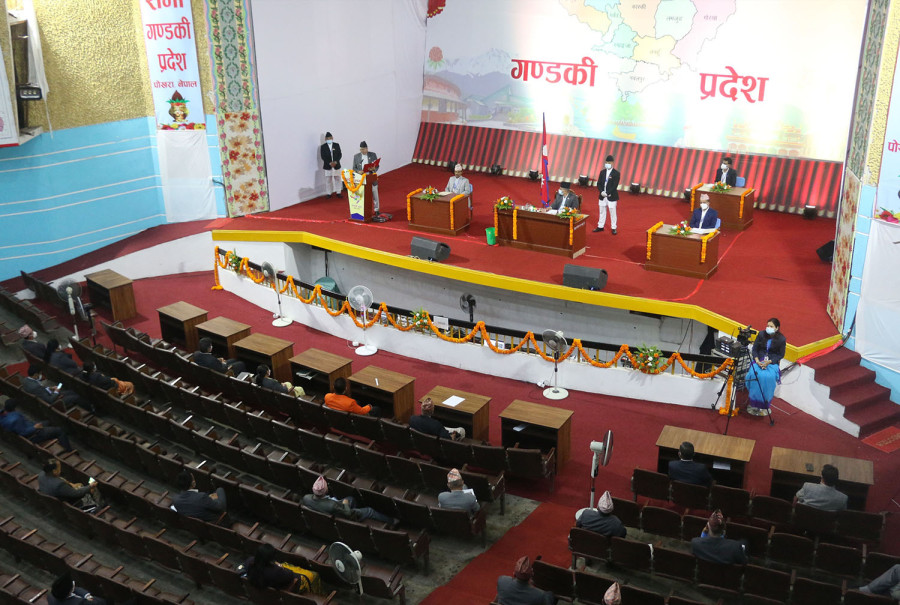Editorial
Depending on handouts
The provinces still rely heavily on fiscal transfers and revenue sharing.
The finance ministers of the seven provinces on Tuesday presented their budgets for the next fiscal year 2021-22 to their respective assemblies. The combined budgets come to Rs262 billion, down slightly from the Rs264.20 billion for the current fiscal year. While the slight decrease in the budget is understandable owing to the economic downturn brought about by the Covid-19 pandemic, what is of concern is that the provinces still rely heavily on fiscal transfers and revenue shared by the federal government while their reliance on internal revenues is negligible. In that sense, the provinces seem to seek only to decentralise federal money rather than generate their own income and emerge as self-dependent units of governance.
On display is the poverty of thought and imagination on the part of the provincial governments in expanding their fiscal jurisdiction as well as maximising local resource mobilisation, independent of the federal government.
If there is one thing to look forward to in the provincial budgets, it is the focus on advanced health care systems and infrastructure. That is a welcome approach considering the pain citizens across the country have endured due to the failure of the health system amidst the pandemic. The provinces have rightly allocated funds for prevention, control and treatment of the coronavirus, compensation for victims of the virus, and allowances for frontline workers. The provinces have also allocated funds to vaccinate all people against the coronavirus, although that seems like an overkill in the absence of a modality. The federal government is expected to take up the responsibility of vaccinating the people.
Apart from health, provinces have variously focused on agriculture, education, and social security as they should. The provinces, though, have not failed to disappoint this time as well, having reproduced programmes that are of little significance at a time when they have a myriad of problems to look after. Barring Lumbini, the provinces have given continuity to the unpopular Local Infrastructure Development Programme that allows assembly members to fund projects of their liking. This increases the risk of corruption as well as extravagance in unviable schemes. At a time when the federal budget for the next year has scrapped the programme altogether owing to the absence of Parliament, it makes little sense for the provinces to continue with a similar programme even as they stare at political crises in the days to come.
Notwithstanding the strengths and weaknesses in terms of allocation, though, the real test of the budget lies in its implementation. No matter how good a budget they present for the next fiscal year, the provinces will not be able to bring meaningful changes in the lives of the people unless they come up with viable plans to implement it. Having inherited archaic administrative systems and practices of the federal government, the provinces still fail to show a firm commitment to delivering services that bring transformative changes in the lives of the people. The provincial governments have a significant role to play not only in the distribution of the country’s resources, but also in addressing the problems of the people locally. Having endured for long a centralised state structure, people have come to expect more from the provincial governments. The budgets of the provinces, therefore, should find local solutions for local problems.




 13.12°C Kathmandu
13.12°C Kathmandu














